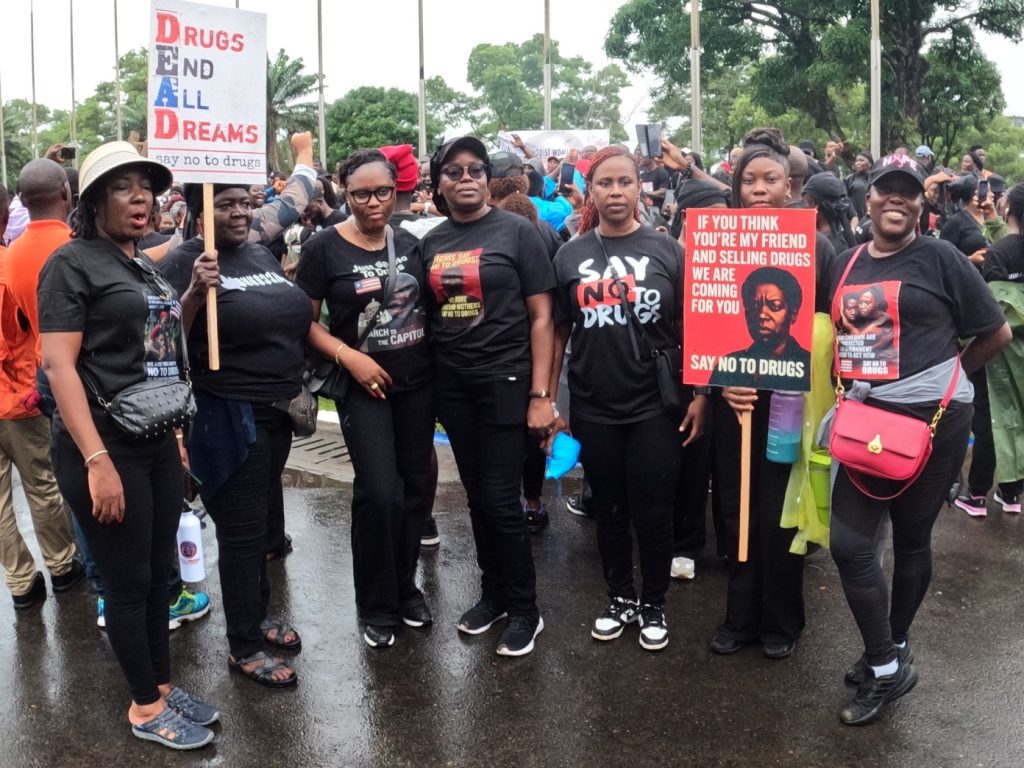Liberia is grappling with a severe drug crisis that has escalated to epidemic proportions, affecting approximately one million of its five million citizens. This crisis, fueled by the widespread availability and consumption of substances like Kush, Tramadol, cannabis, methamphetamine, and other illicit drugs, demands urgent and comprehensive intervention. Recognizing the gravity of the situation, President Joseph Boakai unveiled a new Anti-Drug Action Plan on August 6, 2025, declaring an end to impunity for drug traffickers and affirming his commitment to preventing another generation from being lost to drugs. This announcement came on the eve of a nationwide “Say No to Drugs” march, signaling a concerted effort to address this pressing national issue.
The Anti-Drug Action Plan outlines a multi-pronged approach encompassing law enforcement, education, public health, and legal reforms. Key components include stricter accountability for law enforcement officials through mandatory performance evaluations for LDEA commanders, expedited prosecution of drug-related cases with mandatory sentencing, seizure of assets linked to drug trafficking, and expanded access to rehabilitation and reintegration services. This comprehensive strategy aims to disrupt the supply chain, strengthen the justice system’s response to drug offenses, and provide support for those struggling with addiction.
The “Say No to Drugs” march, held on August 7, 2025, coincided with the International Day Against Drug Abuse and demonstrated the Liberian people’s resolve to combat the drug epidemic. Thousands of citizens braved heavy rains to participate in the demonstration, highlighting the widespread concern and growing awareness of the pervasive impact of drug abuse on families across the nation. This public display of unity and commitment underscores the urgent need for collective action to address this crisis. The demonstration also served as a powerful symbol of national resolve, inspiring further action and advocacy.
The global context of Liberia’s drug problem is underscored by the 2024 UNODC report, which revealed a dramatic increase in global drug use over the past decade, rising from 240 million to 292 million users. The report highlighted the widespread use of cannabis, opioids, amphetamines, cocaine, and ecstasy, underscoring the global nature of the drug challenge. This international perspective emphasizes the need for collaborative efforts and international cooperation to effectively dismantle drug trafficking networks and address the root causes of drug abuse.
Beyond the immediate measures outlined in the Anti-Drug Action Plan, a long-term solution requires a multi-faceted approach that addresses the underlying socio-economic factors contributing to drug abuse. This includes tackling youth unemployment, improving access to mental healthcare services, and investing in rehabilitation centers, especially in underserved rural communities. These centers should provide comprehensive treatment, support, and educational programs on drug prevention and mental health awareness. Furthermore, engaging influential figures like religious leaders, social media influencers, and celebrities in promoting drug-free lifestyles can significantly impact public perception and behavior.
The fight against drug abuse in Liberia requires a sustained commitment from the government, law enforcement agencies, community leaders, and citizens. While President Boakai’s Anti-Drug Action Plan represents a crucial step forward, continuous efforts are needed to ensure its effective implementation and long-term impact. This includes strengthening international partnerships to dismantle global drug trafficking operations and enacting stricter penalties for drug traffickers both domestically and internationally. By addressing both the supply and demand sides of the drug problem, while also providing support for those struggling with addiction, Liberia can build a healthier and more prosperous future for its citizens. The “Say No to Drugs” march serves as a powerful reminder of the collective responsibility to create a drug-free Liberia.














